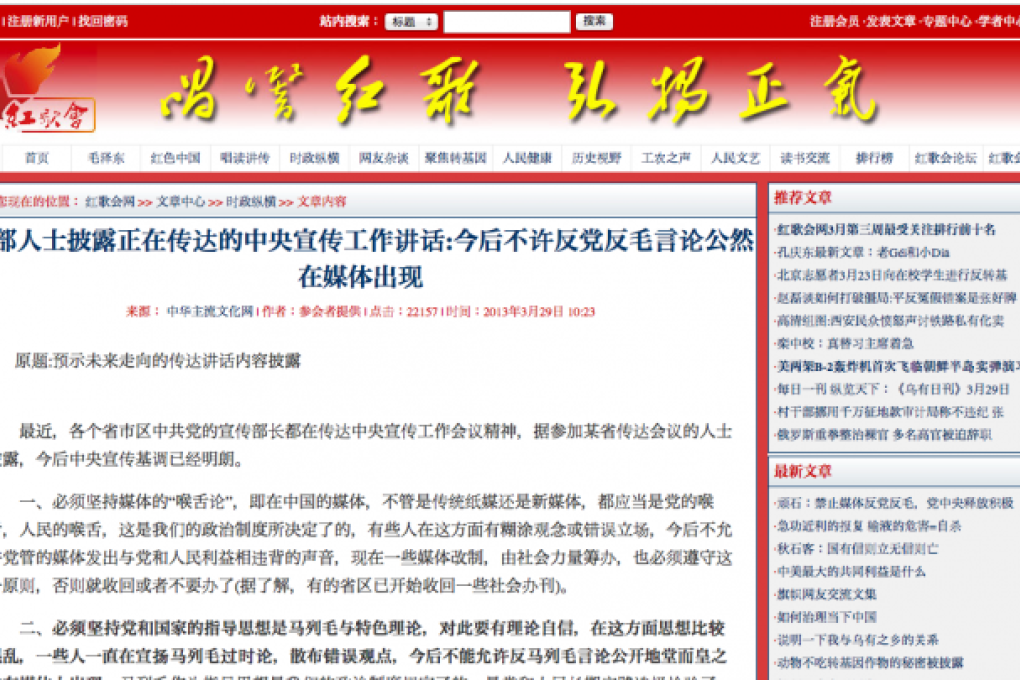Advertisement
Opinion | No criticism of Maoism: Dubious 'media guidelines from censors' circulate internet
Reading Time:3 minutes
Why you can trust SCMP

A list of purported new guidelines for Chinese media banning criticism of former leader Mao Zedong was circulated online during the weekend, causing cheer among leftists and disdain among liberals.
The guidelines ban statements that criticise Mao and call for the removal of journalists and educators who are not loyal to the party.
While the BBC said it corrobated their authencity, several sources contacted by the Post in national media outlets could not confirm the existence of such guidelines, which only circulated on leftist websites maintained by people nostalgic of China's "red" past under Chairman Mao. As such, they could speak more of the aspirations of a minority of die-hard leftists than about China's new media environment only one month into Xi Jinping's presidency.
Advertisement
The text originated from the nationalistic China Mainstream Culture website and was picked up by the leftist Red Song Society forum, then circulated on Sina Weibo. The entire website where the original post appeared has since been taken down, mentions on other sites and many Weibo comments have been deleted.
The website claims that the text is an account of a person present at a regional meeting at which the "spirit" of a meeting at the Communist Party's Central Propaganda Department was passed on to the local level throughout the country. The Propaganda Department is the party's highest censoring body and issues detailed reporting guidelines and embargoes on a daily basis.
Advertisement
"From now on, no criticism of Marxism, Leninism and Maoism can be allowed to openly appear in the media," the account reads. These theories were the foundation of China's political system and could not "be casually disavowed by some people".
Advertisement
Select Voice
Select Speed
1.00x
